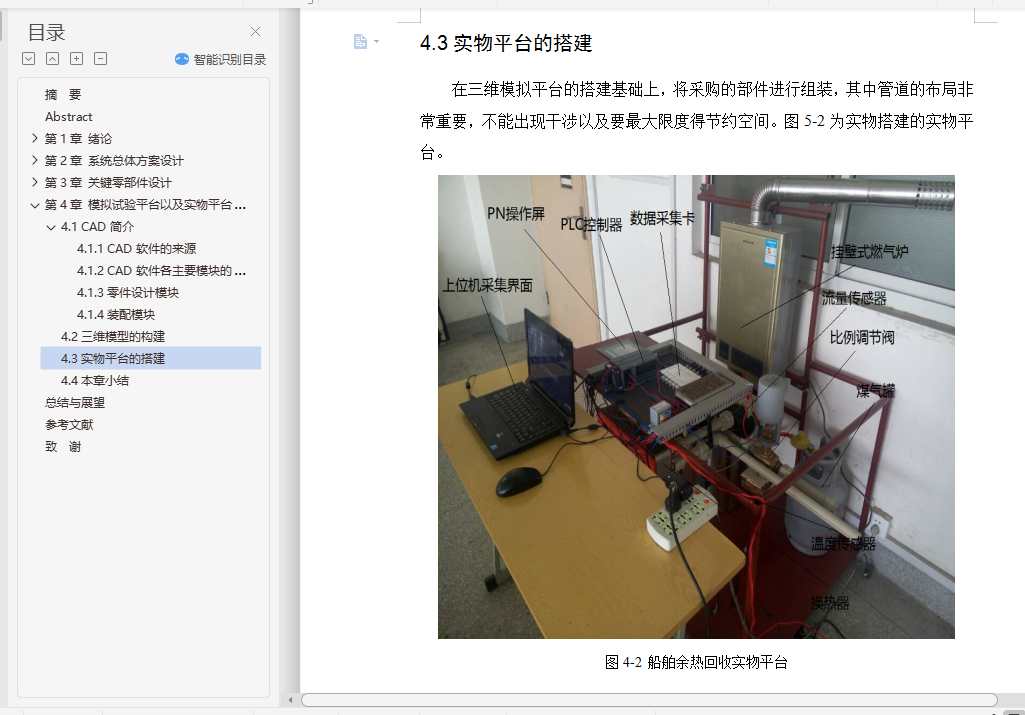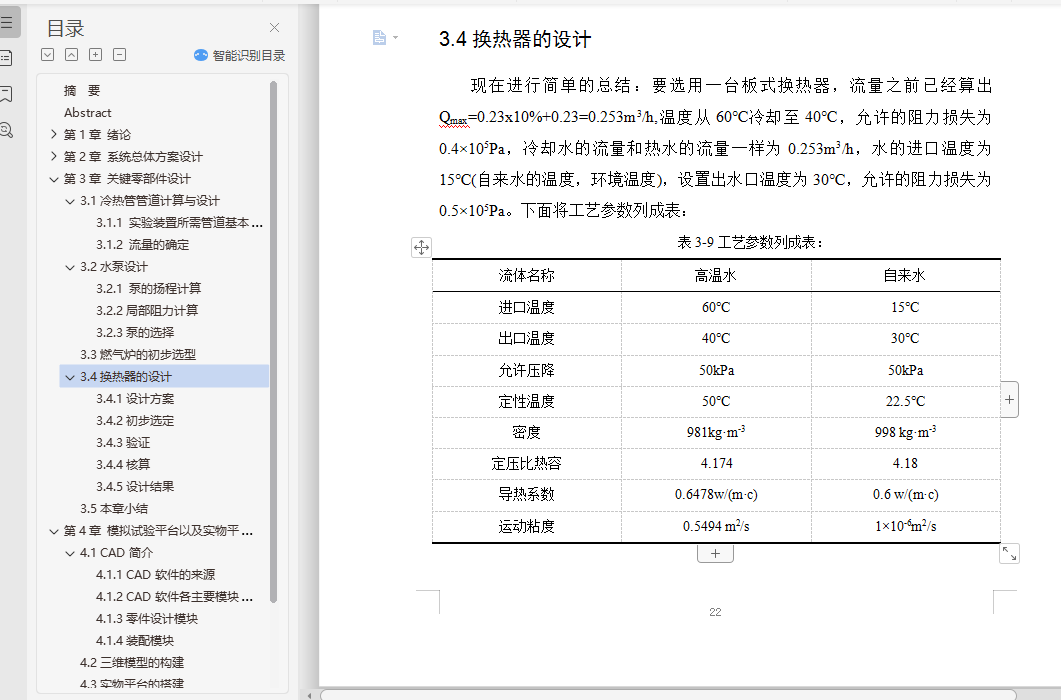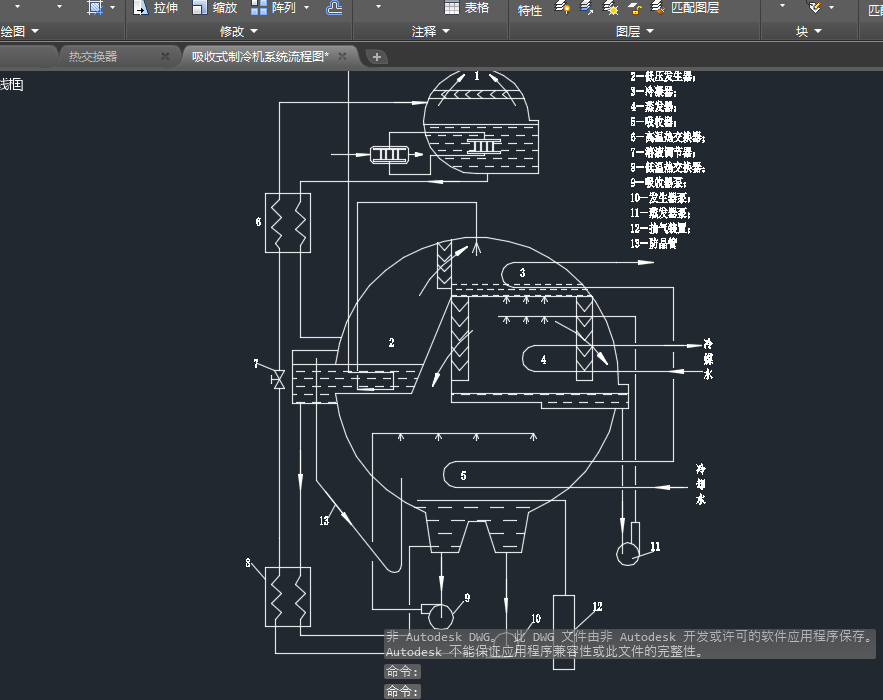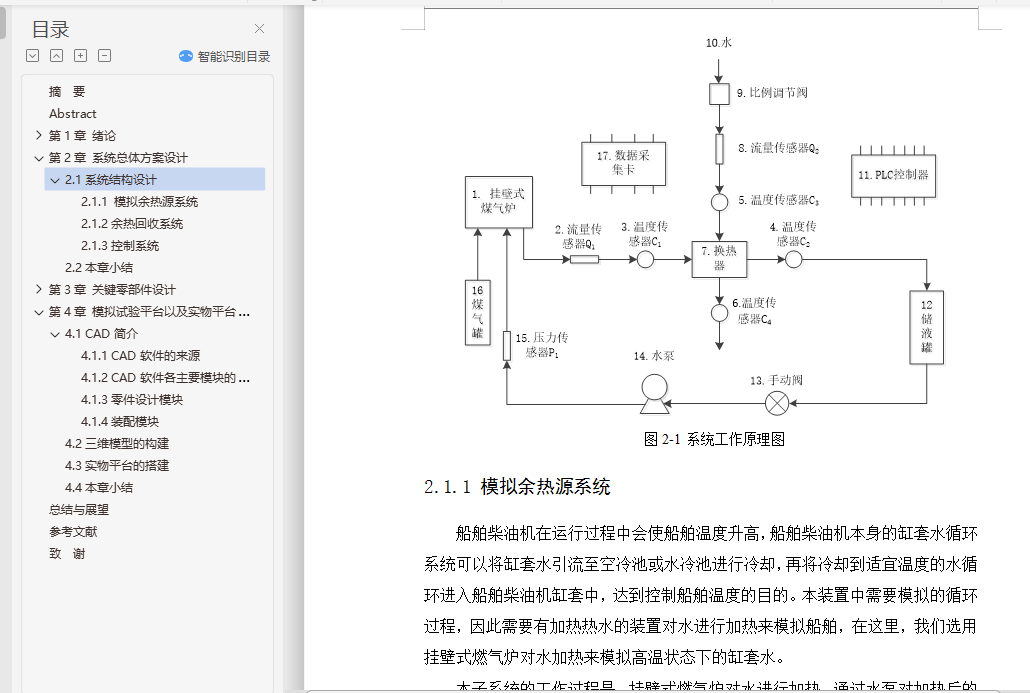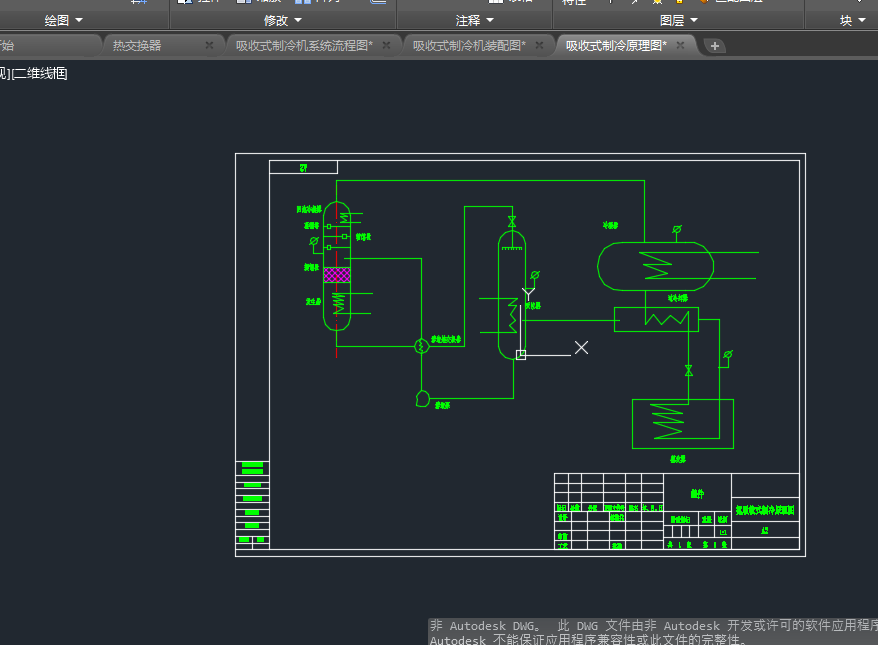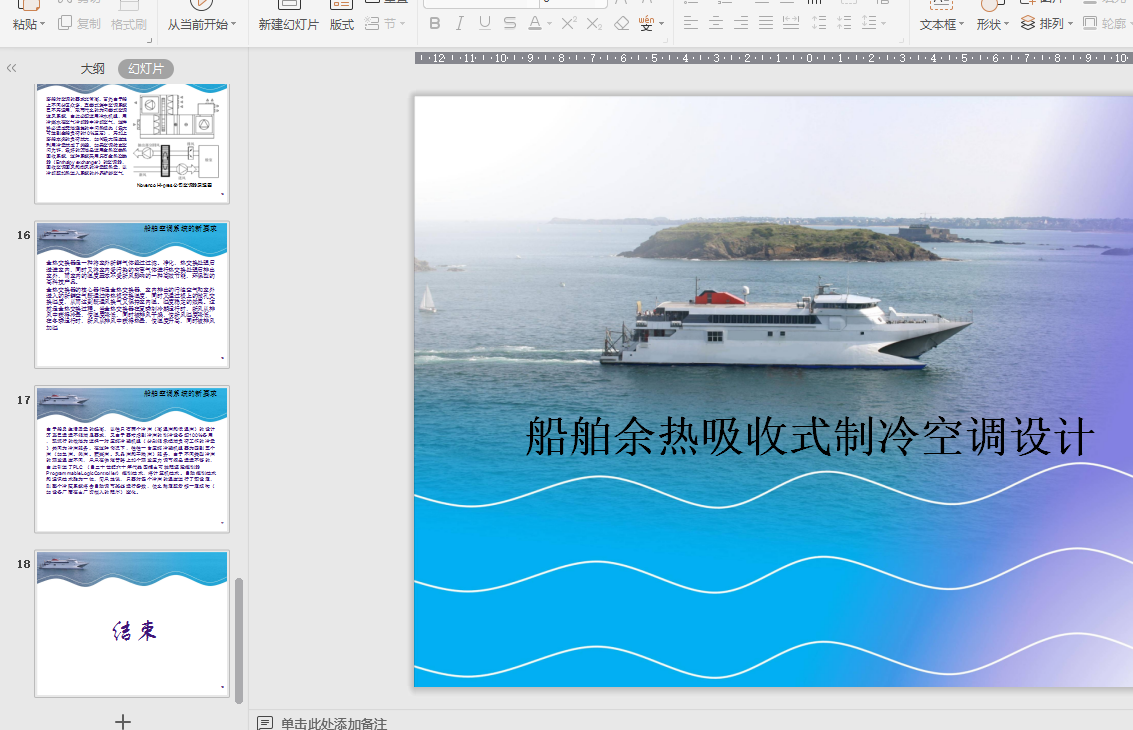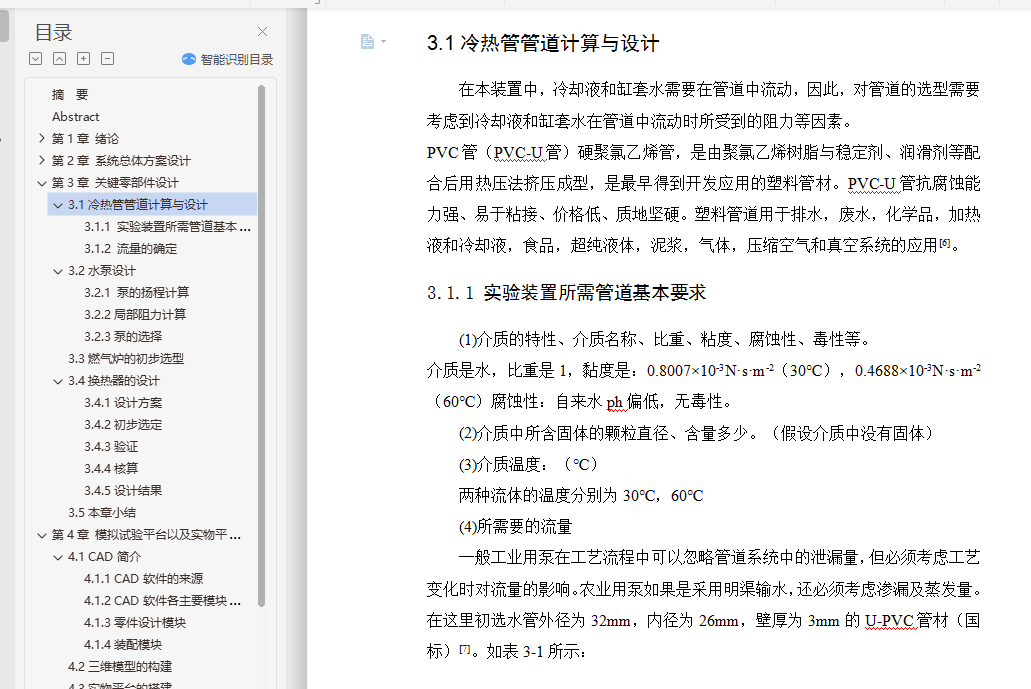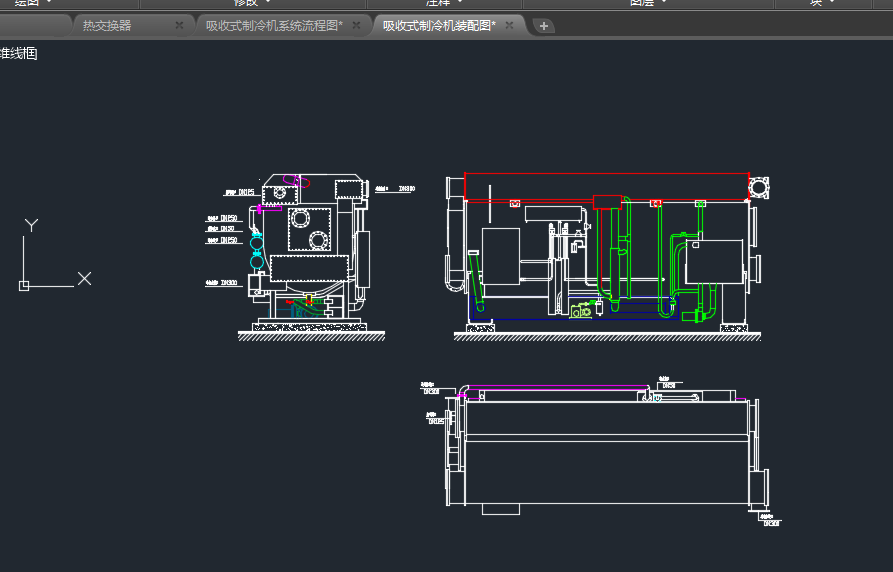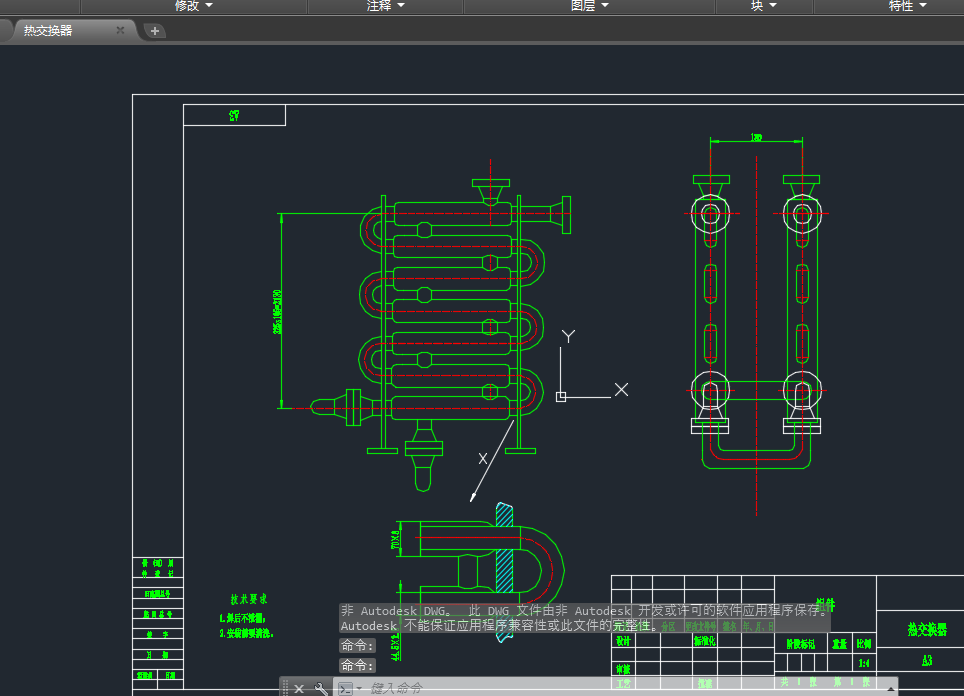摘 要
我国船舶业发展迅速,船舶主机功率大,排气中存在较多未被利用的能量,吸收船舶余热是船舶发动机节能减排的关键。我国的船舶余热吸收式制冷行业仍然走的是借鉴国外先进技术并进行效仿的发展路程,这虽然使我国空调企业的发展规模有所扩大并有所发展,船舶余热吸收式制冷技术的核心研究对象,其研究、发展状况的好坏直接影响着国内的船舶余热吸收式制冷技术的发展。此外,船舶上所配备的制冷设备存在着能源消耗的需求,吸收船舶的废气能量并用于制冷系统,则可以解决船舶制冷和物品冷藏的能量消耗问题。
本次设计的船舶用吸收式制冷空调系统,包括吸收式制冷机组、余热吸收回路及海水回路。当空调供冷时,以船舶主辅机缸套冷却水作为吸收式制冷机组中发生腔的热源,以海水作为该回路中吸收腔和冷凝腔的冷源;冬季供热时,直接利用缸套冷却水作为热源实现供热。
本课题将设计一种船用吸收式制冷系统替代船舶上传统的压缩式制冷系统,不仅有效降低船舶空调系统对船舶电力的消耗,同时充分利用了船舶的余热和废热,使热效率增加20%左右,大大地提高了船舶整体的能源利用效率。
关键词:船舶余热;吸收式;余热回收;制冷空调;空调系统
Abstract
China's ship industry is developing rapidly, the main engine power of the ship is large, there is more unused energy in the exhaust, and absorbing the waste heat of the ship is the key to the energy saving and emission reduction of the ship engine. China's ship waste heat absorption refrigeration industry is still learning from foreign advanced technology and imitation of the development journey, although the development scale of air conditioning enterprises in China has expanded and developed, the core research object of ship waste heat absorption refrigeration technology, its research and development situation directly affect the development of domestic ship waste heat absorption refrigeration technology. In addition, the ship's refrigeration equipment is equipped with energy consumption needs, absorb the ship's Waste gas energy is used in refrigeration system, which can solve the problem of energy consumption of ship refrigeration and goods refrigeration.
The design of the ship's absorption refrigeration and air conditioning system, including absorption refrigeration unit, waste heat absorption circuit and sea water circuit. When air conditioning is used for cooling, the cooling water of cylinder liner of ship's main and auxiliary engine is used as the heat source of the cavity occurring in the absorption refrigeration unit, and the seawater is used as the cold source of the absorption chamber and the condensing chamber in the circuit.
This project will design a marine absorption refrigeration system instead of the traditional compressed refrigeration system on the ship, which not only effectively reduces the consumption of the ship's electric power by the ship's air conditioning system, but also makes full use of the ship's waste heat and waste heat, and increases the thermal efficiency by about 20%, which greatly improves the overall energy utilization efficiency of the ship.
Keywords: ship waste heat; absorption; waste heat recovery; refrigeration and air conditioning; air conditioning system
目 录
摘 要 I
Abstract II
第1章 绪论 1
1.1选题背景及意义 1
1.2国内外研究现状 2
1.2.1国内研究现状 2
1.3.2国外研究现状 3
1.3研究方法及内容 3
1.3.1研究方法 3
1.3.2研究主要内容 4
第2章 系统总体方案设计 5
2.1系统结构设计 5
2.1.1 模拟余热源系统 6
2.1.2余热回收系统 7
2.1.3控制系统 9
2.2本章小结 10
第3章 关键零部件设计 11
3.1冷热管管道计算与设计 11
3.1.1 实验装置所需管道基本要求 11
3.1.2 流量的确定 14
3.2水泵设计 14
3.2.1 泵的扬程计算 14
3.2.2局部阻力计算 17
3.2.3泵的选择 19
3.3燃气炉的初步选型 21
3.4换热器的设计 22
3.4.1设计方案 23
3.4.2初步选定 23
3.4.3验证 25
3.4.4核算 26
3.4.5设计结果 26
3.5本章小结 28
第4章 模拟试验平台以及实物平台的构建 29
4.1 CAD简介 29
4.1.1 CAD软件的来源 29
4.1.2 CAD软件各主要模块的介绍 30
4.1.3零件设计模块 30
4.1.4装配模块 33
4.2三维模型的构建 36
4.3实物平台的搭建 37
4.4本章小结 38
总结与展望 39
参考文献 40
致 谢 41
